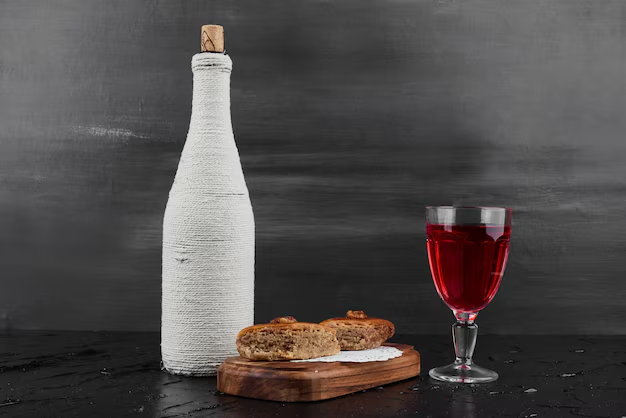How to Maximize Your Wine’s Shelf Life in the Refrigerator
Whether you’re a seasoned wine enthusiast or someone who occasionally indulges in a glass, understanding how to properly store wine once opened can significantly affect its flavor and longevity. One question that often arises is: How long does wine last in the refrigerator? The answer varies depending on several factors, including the type of wine, storage conditions, and quality preservation methods. In this comprehensive guide, we’ll dive deep into these factors, empowering you with the knowledge to keep your wine fresh for as long as possible.
🥂 Understanding Wine and Its Longevity
Before addressing how long wine lasts in the refrigerator, it’s important to grasp the basic nature of wine and what influences its freshness.
What Affects Wine’s Shelf Life?
- Type of Wine: Different wines have varied shelf lives once opened. Red, white, sparkling, and fortified wines each respond differently to air exposure.
- Storage Conditions: Light, temperature, and humidity can significantly affect wine’s longevity.
- Oxidation: Once a bottle is opened, exposure to air begins oxidation — a process that can alter the taste and quality.
- Quality of Wine: Higher-quality wines may have preservatives that extend shelf life compared to less expensive counterparts.
🍷 How Long Does Each Type of Wine Last in the Fridge?
Knowing how long each type of wine lasts can help in planning your consumption and storage.
Red Wine
Typical Lifespan: 3 to 5 days
Red wines generally last three to five days in the fridge. They may oxidize slower than whites, but improper storage can still compromise their quality.
White Wine and Rosé
Typical Lifespan: 3 to 7 days
As delicately flavored wines, whites and rosés typically last up to a week in the fridge. The cooler temperatures slow down oxidation, which helps retain their fresh and vibrant taste.
Sparkling Wine
Typical Lifespan: 1 to 3 days
The bubbles in sparkling wines like Champagne dissipate quickly once opened, leading to a shorter shelf life. To preserve their fizz, use a sparkling wine stopper and consume as soon as possible.
Fortified Wine
Typical Lifespan: 1 to 3 weeks
Due to higher alcohol content, fortified wines like Port and Sherry have a longer shelf life. Their robust nature allows them to survive weeks without significant quality loss.
📊 Wine Shelf Life Summary Table
Here’s a quick reference to help you remember how long different wines can remain fresh in the refrigerator:
| Wine Type | Refrigerator Shelf Life |
|---|---|
| Red Wine | 3 to 5 days |
| White/Rosé Wine | 3 to 7 days |
| Sparkling Wine | 1 to 3 days |
| Fortified Wine | 1 to 3 weeks |
🛡️ Tips to Extend Wine’s Life in the Refrigerator
Understanding how to extend your wine’s life can save both money and enjoyment.
Recorking the Bottle
An easy yet effective method! Recorking immediately after pouring a glass helps minimize additional air exposure. For better results, ensure the cork is reinserted with the end that was in contact with the wine.
Wine Stoppers and Pumps
Investing in a wine stopper or vacuum pump can also help. These tools effectively reduce oxidation by limiting air interaction.
Proper Storage Orientation
Once opened, store bottles upright in the refrigerator. This position minimizes the surface area exposed to oxygen, prolonging freshness.
Use Specialized Tools
Consider a wine preservation system that extracts a portion of wine without uncorking the bottle initially, keeping the remaining wine fresh.
🌡️ Optimal Wine Storage Conditions
Temperature
Wine storage before and after opening should ideally be consistent. Refrigeration aids in keeping the temperature low and stable, which assists in maintaining wine integrity.
Humidity
A balance is crucial. While high humidity can dampen corks and promote mold growth, too low can dry them out and allow air to seep in.
Light Exposure
Store wine away from sunlight, as UV rays can degrade both the taste and aroma. A dark, shaded space or wine fridge is ideal.
🔍 Wine Storage FAQs
Can I Store Opened Wine in the Freezer?
Freezing open wine is not advisable for retaining its gustatory value. The expansion can affect the integrity of the cork.
Is It Safe to Drink Wine Past Its Prime?
While it may not cause harm, drinking wine past its prime often results in an unpleasant taste and less aromatic experience.
Does Wine Go Bad Before it Tastes Off?
Most wines will noticeably taste off or may develop a vinegar-like smell before they become undrinkable.
📌 Key Takeaways for Storing Opened Wine
- Type Matters: Different wines have different shelf lives.
- Tools are Handy: Use stoppers, pumps, and preservation systems when possible.
- Store Smartly: Keep wine upright, cool, and sealed to extend its life.
- Consume Timely: Enjoy your wines sooner rather than later to experience their full flavors.
By understanding and adhering to these guidelines, you can ensure that your cherished bottle of wine remains as delightful as when it was first opened. 🍾 Cheers to enjoying your wines at their freshest!

